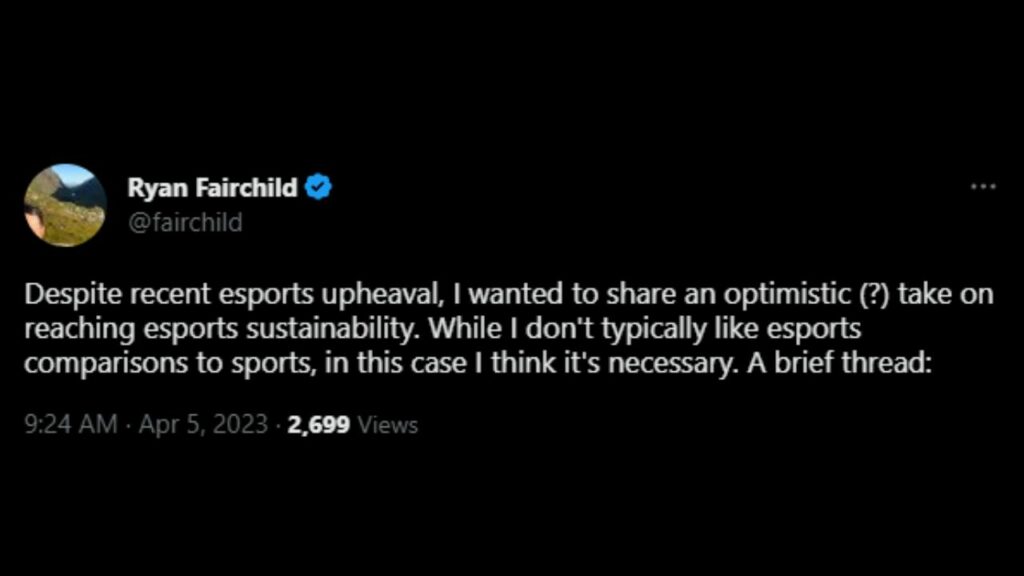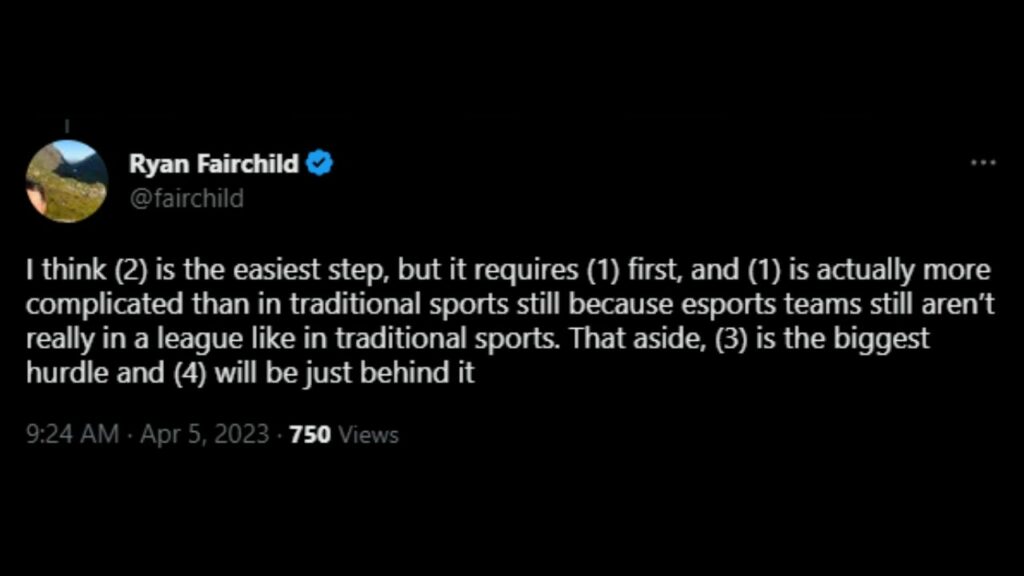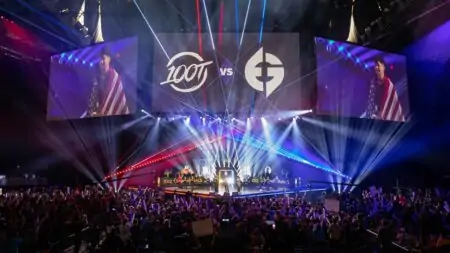There’s no denying that 2023 has been rough for esports, the tech market, and to be frank, the global economy. With the number of layoffs, teams shutting down, and the uncertainty of the future, it’s easy to get lost in the doom and gloom.
Hope remains, however, and that’s the focus of this article. The ideas discussed here come from Ryan Fairchild, an attorney serving as a board member of the LCS Players Association, and a veteran of the industry.
- Exclusive: How esports coaches can set their team up for success, according to Peter Dun
- CLG is reportedly no more, League of Legends team likely to be bought by this organization
Esports sustainability isn’t impossible, but changes need to be made

Despite the current state of esports, Fairchild took to Twitter to share what he called an optimistic take on achieving “sustainability” in the scene.
Throughout the thread, he draws comparisons to traditional sports, something he says he typically doesn’t like to compare. He suggests that the specific games should focus on similar “key financial terms” to that of the NBA.
“In the NBA, the key financial term that the players association and the league negotiate over is basketball-related revenue. Esports needs to get to a point where a similar dynamic emerges.”
How does an esports title do that? Fairchild points out several key steps that would need to be taken to achieve the goal.
“That dynamic will require: (1) players in a particular esport to unionize, (2) the teams to bargain jointly, (3) the esport’s publisher to join the bargaining with the players’ union and the team group, and (4) the parties to agree on how to calculate “esports-related revenue,” he explained.
Those of us who have been around the industry for a while don’t even need him to tell us which one is the hardest to get done. Number three is something that is still extremely limited throughout the industry, and not prevalent in major titles such as Counter-Strike and Dota 2, thanks to Valve’s more hands-off approach.

In terms of how Fairchild sees it, teams taking the negotiating process together would be the easiest part. The problem is that it requires other steps to work as well.
“I think (2) is the easiest step, but it requires (1) first, and (1) is actually more complicated than in traditional sports still because esports teams still aren’t really in a league like in traditional sports,” he said.
“That aside, (3) is the biggest hurdle and (4) will be just behind it,” he added to echo my earlier statement.
Is it possible? Well, of course! He points out that Riot Games is actually already doing it with the revenue share program that they’re utilizing with Valorant. This is a model he believes is already outshining that of other franchise and non-franchise models not following a similar approach.
This pivot away from venture capitalist-funded esports organizations is something Fairchild believes is better in the long run.
So what’s the main takeaway? There is a better way, but it involves direct work with the game publishers, a difficult task for many of the titles.
This drop in funding could lead to these drastic moves, however, and in the end, this could be the beginning of a new and more sustainable era in esports. Nothing is guaranteed, but the possibility remains.
READ MORE: The 7 most recognizable voice actors in esports and gaming

